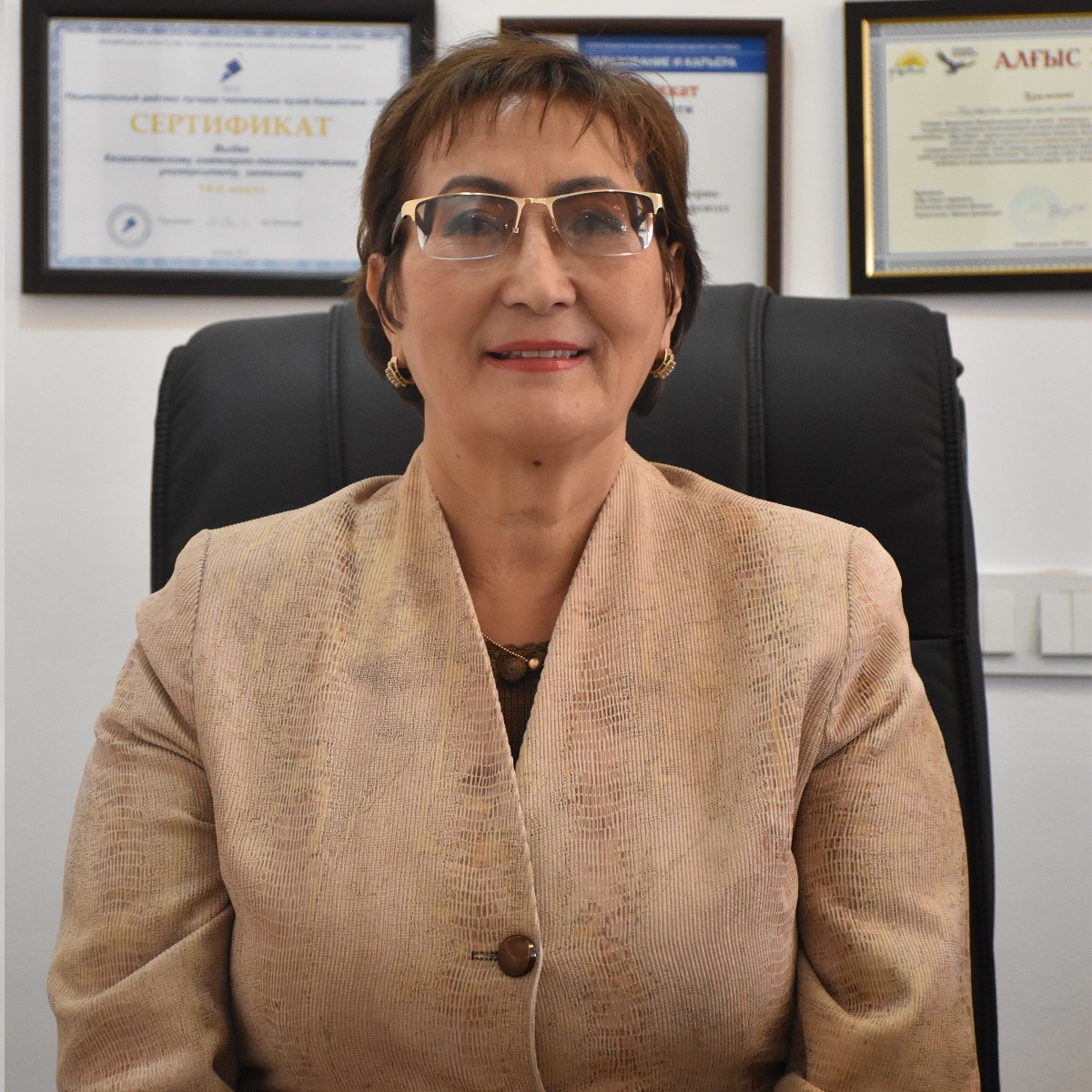| Additional Educational Program |
Examination of the quality of processing of hydrocarbon raw materials |
| The goal of the educational program |
Оbtaining knowledge on the theoretical foundations of determining commodity and technical indicators in oil and petroleum products, using a set of standard methods of analysis, as well as acquiring practical skills in standard methods of analysis, interpretation of the data obtained, which would expand the scope of graduate employment and increase the horizons of environmental protection measures to protect the environment in general. |
| The goal of the educational program |
- study of the theoretical foundations of the technology of primary preparation and processing of hydrocarbon raw materials and processing of combustible materials;
- proficiency in chemical experiment skills, synthetic and analytical methods for obtaining and studying chemicals and reactions;
- knowledge of the methods of isolation and analysis of petroleum components and refined products of oil and petroleum products;
- ability to analyze and compare the results of instrumental and physico-chemical methods of isolation and analysis of petroleum components;
- acquisition of basic skills in the examination of input control of raw materials, substances and auxiliary materials to ensure existing technological lines and processes.
|
| Expected learning outcomes |
As a result of studying the discipline, the student will be able to:
- LO1 - Classify harmful industrial emissions according to the Regulations
- LO2 -- Demonstrate knowledge on environmental conservation based on the data obtained on the processing of hydrocarbon raw materials;
- LO3 - Monitor the quality of the composition of the environment on production sites
- LO4 -To evaluate the quality of manufactured commodity products of oil and petroleum products processing facilities;
- LO5 - Promote compliance with the rules and regulations of occupational health, safety, fire protection and environmental safety
- LO6 - Regulate and control the technological regime of oil and petroleum products processing facilities
- LO7 - Analyze the reasons for the deviation of the quality of manufactured products;
- LO8- Identify possible industrial hazards and harmful factors.
|
| Information about course |
| Physico-chemical methods of oil and petroleum products research |
Studies the basic instrumental and physico-chemical methods of isolation and analysis of petroleum components and refined petroleum products (elemental analysis, chromatography, chromato-mass spectrometry, spectral, chemical research methods), familiarization with the skills of chemical experiment, familiarization with the methods of obtaining and studying chemicals, work in laboratory conditions with synthetic and analytical reactions, perform standard operations on analysis of the quality of hydrocarbon raw materials and products of its processing, as well as the basic standard operations for analyzing the quality of hydrocarbon raw materials and products of its processing.
Lectour
 Zhenisova Akbota Zhenisovna Zhenisova Akbota Zhenisovna
Associate professor
The Department of «Biochemical engineering», candidate of chemistry sciences, Academic building
|
| Technology of primary preparation and processing of hydrocarbon raw materials |
The fundamental foundations of modern processes of processing hydrocarbon raw materials, the features of the relationship between possible chemical sciences and technologies, modern ways to increase economic production due to the efficiency of assessing oil production, deep oil refining and petrochemistry, as well as carrying out theoretical and experimental work on the study of new catalysts for deep processing are considered. processing of hydrocarbon raw materials.
Lectour
 Melnikov Evgeny Aleksandrovich Melnikov Evgeny Aleksandrovich
PhD, Academic building
Associate professor, The Department of «Biochemical engineering»
|
| Ecological and analytical control of the environment |
Studies the theoretical foundations of environmental protection, familiarization with modern methods of analysis necessary for conducting eco-analytical control and monitoring of the biosphere (hydrosphere, lithosphere, atmosphere). Maximum permissible concentrations (MPC), maximum permissible discharges (MPC), maximum permissible emissions (MPC) and their values, properties of the main chemical pollutants, their behavior in the environment and methods of analysis of chemical, physico-chemical and biological control of them in industrial emissions, environmental objects, food products.
Lectour
 Muzdybaeva Sharbanu Akkazinovna Muzdybaeva Sharbanu Akkazinovna
The Department of «Biochemical engineering»
Associate Professor, candidate of chemistry sciences,
|
| Processing of combustible materials |
Studies solid combustible materials of both natural and artificial origin and organic compounds in more depth. The types (types), groups of flammability, requirements of norms, storage of combustible materials (flammable solvents – various esters, white spirit, benzene, kerosene, dichloroethane, toluene, acetone, dioxane, ethyl acetate) are considered. Explosive mixtures (safety in the technological scheme, labor protection, etc.). Fuel and lubricants are considered separately – from aviation kerosene to naval fuel oil, various types of oils for the lubrication of machinery mechanisms, aggregates, production and use of paint and varnish products based on organic solvents, flammable liquids, description, fire classes, extinguishing and storage rules, compliance with fire protection and environmental safety.
Lectour
 Melnikov Evgeny Aleksandrovich Melnikov Evgeny Aleksandrovich
PhD, Academic building
Associate professor, The Department of «Biochemical engineering»
|



